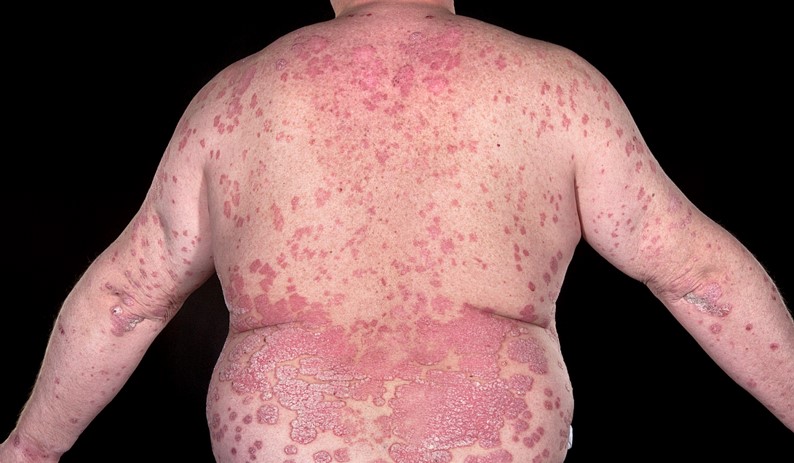Compared with the major global diseases, psoriasis is easily overlooked, but it affects people both physically and mentally. New research shows that psoriasis does not only affect the skin. People with psoriasis develop cardiovascular disease much more frequently. The reason remains unclear, but the researchers believe that doctors should pay extra attention to the diseases that may result from psoriasis when treating the people who have it.
Living with psoriasis does not merely mean chronic and painful effects on the skin, nails and sometimes the joints. It often produces negative mental and social effects; one reason is that many people believe it is an infectious disease. Most people contract psoriasis in late puberty, and this very often results in reduced ability to make friends, lost job opportunities and long-term expenditure for medication. Research in the past 10–15 years has also shown that people with psoriasis have an increased risk of other diseases such as cardiovascular disease, obesity, type 2 diabetes and even depression.
“People with psoriasis are not only stigmatized because of the visible skin changes. Research shows that they develop lifestyle-associated diseases much more frequently. This increased frequency was primarily thought to result from unhealthy lifestyles, but our new findings indicate that psoriasis may increase the risk of such diseases as cardiovascular disease, perhaps resulting from chronic inflammation of the skin. In any case, doctors should pay extra attention to examining people with psoriasis for cardiovascular disease,” explains Lone Skov, Clinical Professor, Department of Clinical Medicine, Herlev and Gentofte Hospital, University of Copenhagen.

Other lifestyle factors are almost certainly involved
The researchers specifically examined the association between psoriasis and cardiovascular disease using data from the Danish National Birth Cohort – a national registry containing data on mothers and their babies born in 1997–2004. Of 82,823 women, 2435 were identified as having psoriasis (2.90%).
“The women with psoriasis more frequently had elevated cholesterol and high blood pressure, which are risk factors for cardiovascular disease, even after adjusting for body mass index and smoking habits. These numbers suggest that factors other than lifestyle may increase the risk.”
Chronic inflammation of the skin may be a contributory factor, and this is supported by the fact that the people with severe psoriasis have the greatest elevated risk of cardiovascular disease. Researchers have focused on this chronic inflammation in explaining the increased frequency of cardiovascular disease and type 2 diabetes among people with psoriasis and the increased frequency of psoriasis among people with obesity.
“This explanation appears to be very plausible and should be investigated further. However, lifestyle factors affecting people with psoriasis because of their social challenges are also almost certainly involved. They drink more alcohol, are more often obese and smoke more often, so the increased risk of cardiovascular disease probably results from a combination of social, genetic and physiological factors.”
A major chronic disease
Health systems worldwide are beginning to realize the serious effects of psoriasis. Most recently, the World Health Organization has included psoriasis as an area of focus within major chronic diseases. This will help to raise awareness of the various ways psoriasis can affect people’s lives and to provide decision-makers with practical solutions to improve healthcare systems for people with psoriasis.
“People do not die from psoriasis, but it really adversely affects people’s quality of life. Typically, it affects people in the years when they have to settle down, find new friends and find work. The ignorance about psoriasis means that many people think it is contagious. Psoriasis can therefore lead to loneliness and isolation and may make people’s dream jobs unobtainable.”
Psoriasis also imposes significant costs on healthcare systems. People with severe psoriasis often need lifelong medicine and routine follow-up by dermatologists. One good thing is that really effective new treatments have been marketed for people with severe psoriasis in the past few years.
“Our study supports the findings that people with psoriasis also develop cardiovascular disease more frequently. Whether this results from classical risk factors or the inflammation associated with psoriasis, doctors and the healthcare system should focus intensely on these aspects of the disease and try to help people live a healthier and longer life.”
“Psoriasis as a predictor of cardiometabolic comorbidity in women: a study based on the Danish National Birth Cohort” has been published in Acta Dermato-Venereologica. The Danish National Birth Cohort has received grants from the Danish National Research Foundation, Denmark’s administrative regions, the Novo Nordisk Foundation and others.
